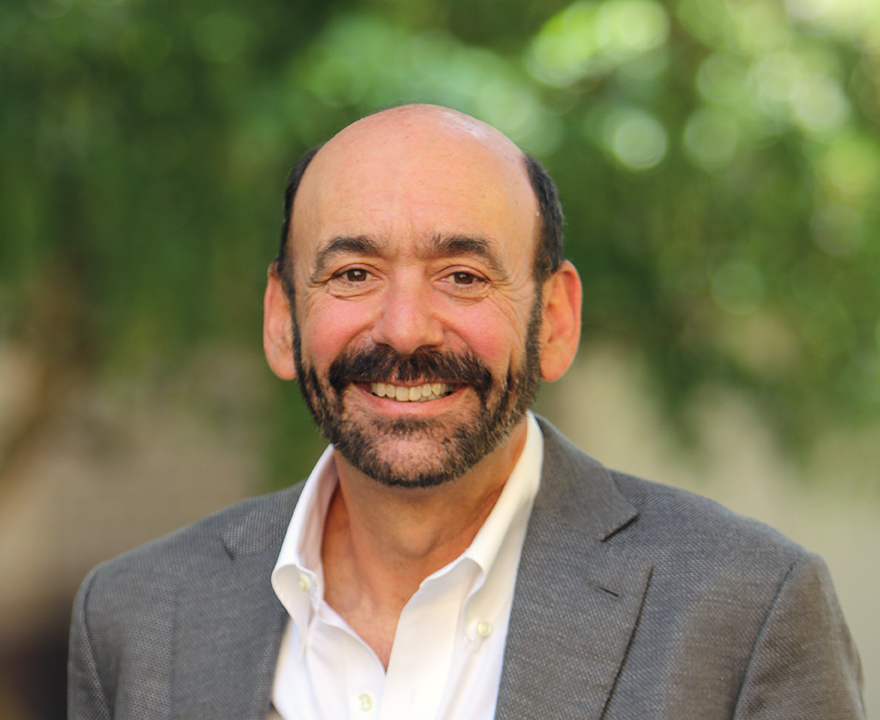Tracking and enhancing students’ college-to-career trajectories

Tracking and enhancing students’ college-to-career trajectories
- December 3, 2024
- Richard Arum, UCI sociology and education professor, receives $1.95 million in grant funding for work on fostering equitable career outcomes
Improving students’ transitions from college to career by tracking and enhancing engagement in internships and campus career services is the focus of a new three-year, multi-university project spearheaded by Richard Arum, University of California, Irvine professor of sociology and education. Funded by $1.95 million in grants from the Strada Education Foundation and Ascendium Education Group, the research-driven collaboration will seek to foster equitable career outcomes, especially for underrepresented students, by strengthening connections between academic experiences and early career opportunities.
“The U.S. higher education system over the life span delivers remarkable benefits for the vast majority of graduates,” says Arum. “But with comparatively weak linkages between schools and employers in the U.S., the short-term transitions from college to career for large numbers of students are extraordinarily fraught, particularly for individuals from less privileged economic backgrounds as well as those majoring in less occupationally specific fields.”
Internship and career services programs play a known and critical role in bridging college-to-career trajectories, but data on experiences and engagement with these programs is limited. To fill this gap, Arum and researchers will leverage information collected under the UCI Measuring Undergraduate Success Trajectories project (UCI-MUST), which includes data on everything from courses, GPA and living situations to student moods and, most notably, activity within Handshake, the campus’ career services platform.
“Handshake career service data provide detailed information on student career exploration and preparation – counseling, searches, workshops on resume and cover letter writing, mock interviewing techniques – as well as advising on internships, employer campus visits and career fairs,” says Arum. The digital platform also records job search and application behavior.
“This comprehensive data makes visible for the first-time critical school-to-work linkages that are essential for improving employment outcomes for college students,” he says.
Existing partnerships with Northeastern University and Calbright Community College will provide supplementary research on required workplace internships and adult learners’ use of mentorship, advisement and career services alongside online work-force training. Together with qualitative research collected via interviews and focus groups with students and career center staff, the project will provide a more comprehensive understanding of the dynamics at play in college-to-career transitions, thereby informing more effective policies and practices tailored to enhance undergraduate student career success, says Arum.
“At UCI, the project will home in on student career exploration and preparation activities, job search and application behaviors, career development processes, internship experiences, career mentorship and coaching, labor market outcomes, and social inequality in career preparation and job application activities,” he says. “By understanding career exploration and preparation as well as job search and application processes better, we can identify mechanisms that colleges and universities can adopt to promote improved and more equitable labor market outcomes for all students.”
Strada Education Foundation funding includes $300,000 for a 12-month pilot project through the end of 2024, and a two-year, $213,000 postdoctoral fellowship to focus on the initiative, effective Aug. 2024-July 2026. Ascendium Education Group funding includes a three-year, $1,435,800 grant running through July 2027. Oded Mcdossi, assistant professor of sociology, University of Haifa and a former postdoc on the UCI-MUST Project, is Arum's co-PI on the pilot project and Ascendium-funded work.
-Heather Ashbach, UCI Social Sciences
-----
Would you like to get more involved with the social sciences? Email us at communications@socsci.uci.edu to connect.
Share on:
Related News Items
- Tracking and enhancing students' college-to-career trajectories
- Arum and Duncan recognized among top 60 influential education scholars nationwide in 2024
- The 2024 RHSU Edu-Scholar Public Influence scoring rubric
- Opinion: Selective admissions on trial
- Opinion: For most college students, affirmative action was never enough


connect with us: